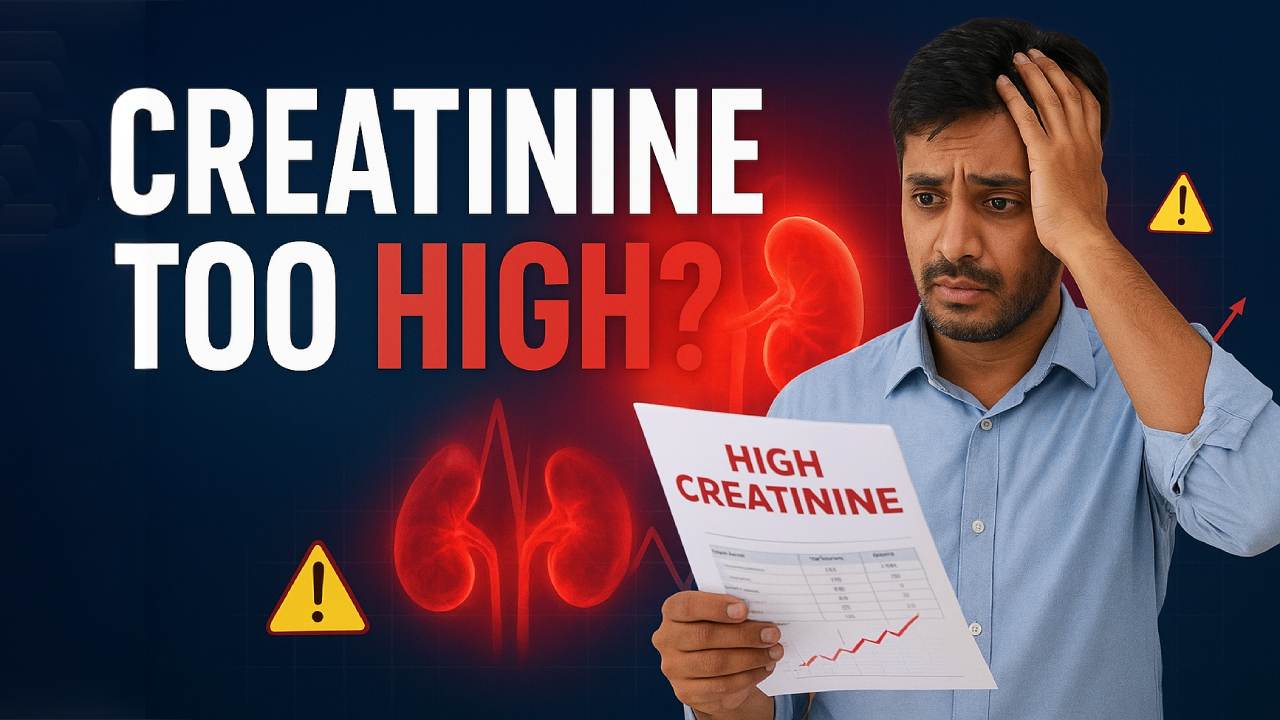Common Urological Issues in Men Over 50: What You Should Know
Verified By Dr. Rahul Tiwari | 08-Apr-2025
As men cross the age of 50, several health concerns become more prominent — and urological health is one of the most important yet often overlooked aspects. From frequent urination at night to difficulty in emptying the bladder or concerns about sexual health, these symptoms can indicate underlying urological issues that deserve timely attention.
In this blog, Dr. Rahul Tiwari, Urologist at Kailash Hospital, Sector 71, Noida, sheds light on the most common urological problems in men over 50, their warning signs, and available treatment options.
Table of Content
BPH is a non-cancerous enlargement of the prostate gland, a condition that affects nearly 50% of men over the age of 50 and up to 90% of men over 80.
Symptoms:
- Urge to urinate frequently, particularly during nighttime (nocturia)
- Weak urine stream
- Difficulty starting or stopping urination
- Sensation of incomplete bladder emptying
Why it matters:
Although not cancerous, BPH can disrupt daily life and, if ignored, may cause urinary infections or even kidney problems.
Treatment options:
- Lifestyle changes (limiting fluids at night, avoiding caffeine/alcohol)
- Medications to relax prostate muscles or shrink the prostate
- Minimally invasive procedures or surgery (like TURP)
Also read: What causes Cystitis in the elderly women?
One of the most common types of cancer in men, prostate cancer often develops slowly and may not show symptoms early on. However, early detection significantly improves treatment success.
Symptoms (if present):
- Blood in urine or semen
- Erectile dysfunction
- Pain in the back, pelvis, or hips
- Difficulty urinating
Diagnosis:
- PSA (Prostate-Specific Antigen) blood test
- Digital rectal exam (DRE)
- Biopsy and imaging if required
Treatment:
- Active surveillance (in slow-growing cases)
- Surgery, radiation therapy, or hormone therapy in aggressive cases
Prevention Tip by Dr. Tiwari:
“Men above 50 should consult an urologist regularly for prostate screenings. Catching the disease early makes a big difference."
ED involves difficulty getting or keeping an erection firm enough for intercourse. While occasional issues are common, persistent ED could signal a deeper medical issue.
Causes:
- Reduced blood flow due to cardiovascular disease
- Diabetes
- Low testosterone
- Stress, anxiety, or depression
- Side effects of medications
Treatment:
- Oral medications (like sildenafil)
- Lifestyle changes (exercise, quitting smoking, managing diabetes)
- Psychological counseling
- Advanced treatments like vacuum devices or penile implants
Also read: Infertility in Men and Women: Common Causes and Risk Factors in India
Incontinence is the loss of bladder control. Although often associated with aging women, many men — especially those with prostate issues or post-surgery — experience it too.
Types of Incontinence:
- Stress incontinence: Leakage during activities like coughing or sneezing
- Urge incontinence: Sudden, overwhelming need to urinate
- Overflow incontinence: Involuntary dribbling due to incomplete emptying
Management:
- Bladder training exercises
- Medications
- Surgical options or use of external collection devices
These are solid mineral deposits that develop in the kidneys and can cause intense pain when passing through the urinary tract.
Symptoms:
- Severe back or side pain
- Pain during urination
- Blood in urine
- Nausea and vomiting
Risk Factors:
- Not drinking enough water
- High intake of salt, sugar, or animal-based proteins
- Family history of kidney stones
Treatment:
- Increased water intake
- Pain medications
- Medical procedures like shock wave lithotripsy or laser removal
Also read: Learn How to Pass Kidney Stones and Prevent Future Ones
Dr. Rahul Tiwari recommends scheduling a consultation if you experience any of the following:
- Difficulty or pain while urinating
- Blood in the urine
- Loss of bladder control
- Erectile dysfunction
- Persistent lower abdominal or back pain
Ignoring symptoms can lead to complications that are more difficult to treat.
- Stay hydrated: Drink plenty of water to reduce the risk of kidney stones and UTIs.
- Exercise regularly: Helps in weight management and improves blood circulation.
- Eat a balanced diet: Reduce red meat, salt, and processed foods.
- Avoid smoking and excessive alcohol: These can worsen urological conditions.
- Routine screening: Especially for prostate health and PSA levels.
Urological health is an essential part of overall wellness for men over 50. Many of the conditions discussed above are manageable or even preventable with early diagnosis and the right care.
If you or a loved one are experiencing any symptoms, don’t hesitate to consult an urology specialist. Dr. Rahul Tiwari and his team at Kailash Hospital, Sector 71, Noida, offer advanced diagnostic tools and personalized treatment options to support men’s health at every stage of life.



 +91-9711918451
+91-9711918451
 international.marketing@kailashhealthcare.com
international.marketing@kailashhealthcare.com







